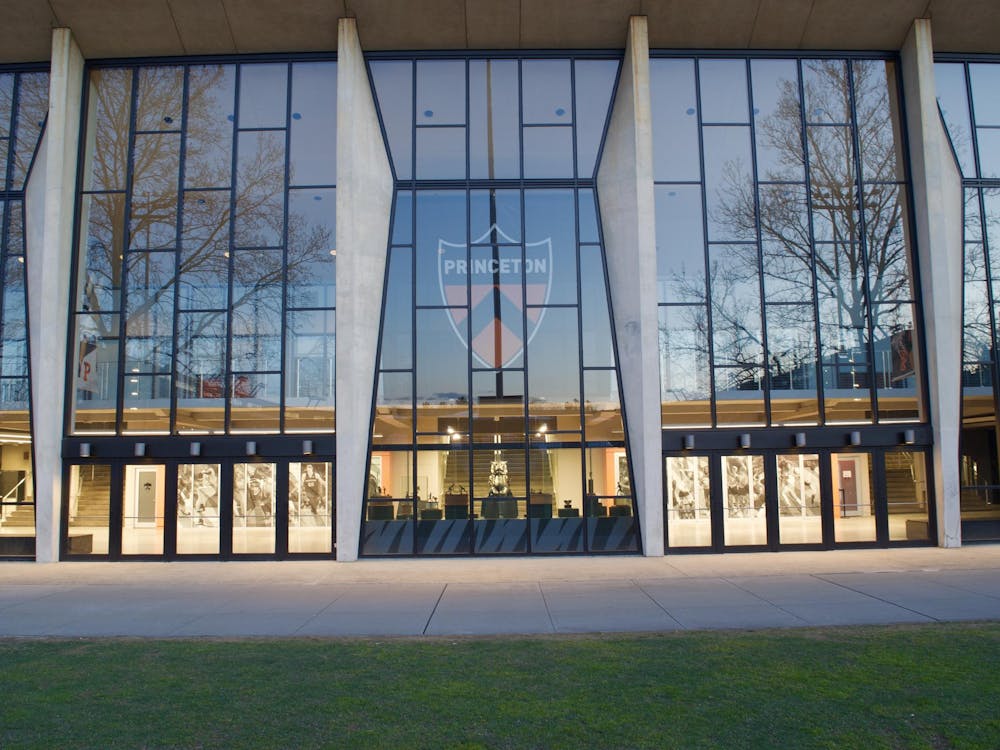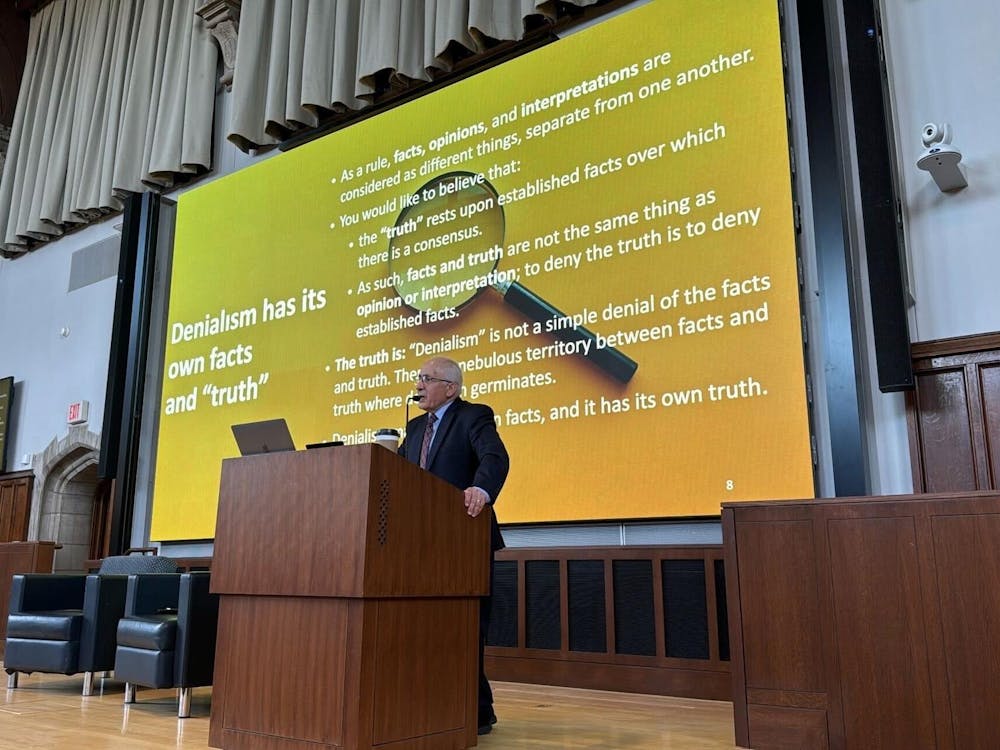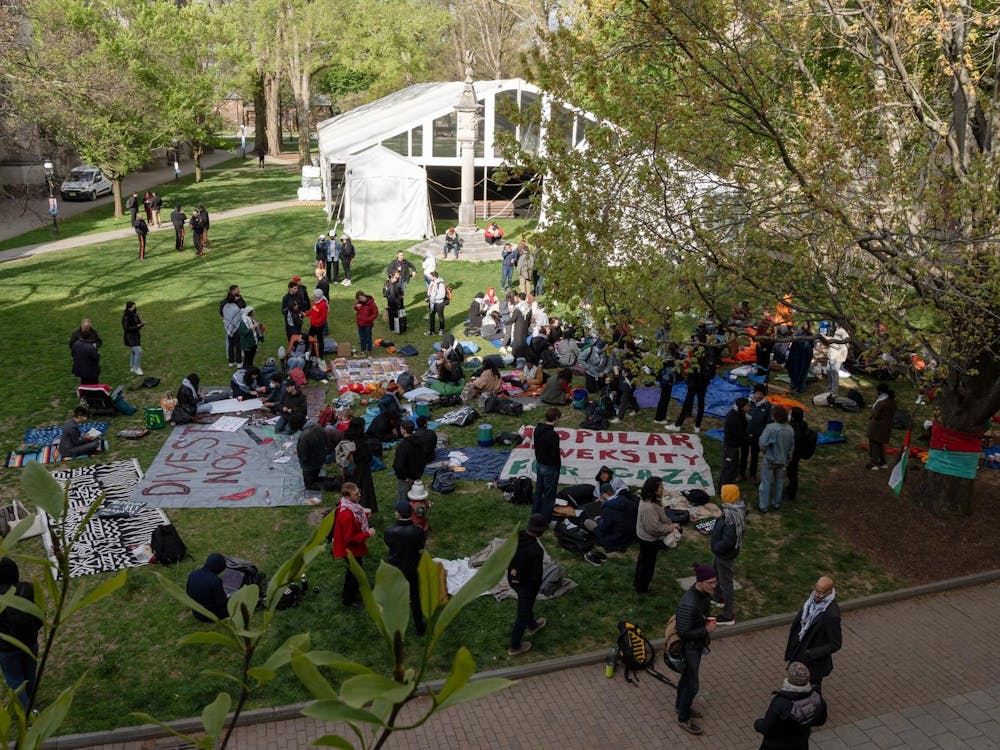University President Christopher Eisgruber ’83 opened Monday’s Council of the Princeton University Committee meeting with an agenda to provide developments on works from the CPUC Resource Committee, updates on stronger University cybersecurity and from the Freshman Scholars Institute with the McGraw Center for Teaching and Learning.
A brief Q&A session started the meeting, where U-Councilor Pooja Patel ’18 raised the question on why University fraternities and sororities do not have official access to resources from Sexual Harassment/Assault Advising, Resources and Education, noting that 15-20 percent of University students are involved in Greek life.
Patel is a former staff writer for The Daily Princetonian.
Vice President for Campus Life W. Rochelle Calhoun explained that “Rights, Rules, Responsibilities” notes that there cannot be a relationship between Greek life and University resources. She added that students are free to individually access SHARE asan University student.
Economics and Humanistic StudiesProfessor Marc Fleurbaey, chair of the Resource Committee, opened his presentation by discussing values that the University must uphold, such as human rights, sustainability and truth. He added that creating a fixed list of values would be difficult as society is always changing.
Fleurbaey noted that the three main issues he and his Committee addressed for this year were addressing the petition against divestment from those companies benefiting from Israeli occupation, the Students for Prison Education and Reform proposal to divest from prisons and the Princeton Sustainable Investment Initiative proposal to divest from coal and fossil fuels. Fleurbaey noted that he and his Committee will continue to meet with SPEAR, and that discussions on the PSII proposal will likely continue on into next year.
University Chief Information Officer and Vice President for Information Technology Jay Dominick led a presentation on cybersecurity, which he explained as protecting data and confidential information, as well as the protection of technology systems. Dominick also explained the steps one should take in order to prevent being hacked: tasks such as backing up personal files on hard drives, changing passwords and updating antivirus software.
“When somebody compromises your password they are, in effect, you. It’s virtually impossible for us to distinguish somebody who pretends to be you from you and your actions,” Dominick said.
“Our activity this year is really to try and protect credentials,” he explained, adding that this fall the University will introduce a second layer of identification before gaining access to University information.This means that, after putting in a password, another verification tool like a code or a text message will be necessary to have full access, according to Dominick.
In discussing the programs and mission of the McGraw Center, Associate Director Nic Voge talked about how the Center helps students through a variety of academic hurdles, from course work to theses to independent work. He also discussed the emphasis that McGraw places on the relationship between teaching and learning, where McGraw often focuses on hidden academic norms that may prevent unprepared students from succeeding in academics and University course loads.
Associate Dean of the College Khristina Gonzalez gave a presentation on the Freshman Scholars Institute, the University program that allows first-generation and/or low-income students to experience social and academic life at the University before beginning the fall semester, according to its website.

Gonzalez explained the importance and impact that FSI has on incoming students, where the confidence rate in actions such as writing papers, participating in labs and talking to professors increases significantly after completion of FSI. Gonzalez added that the Scholars Institute Fellows Program encourages mentoring between FSI students and alumni as well as opens up opportunities for students to engage in professional leadership roles during the summer.
The meeting concluded with Calhoun introducing the University’s first Dean for Diversity and Inclusion, LaTanya Buck.
“Former colleagues have described LaTanya Buck as a change agent, hardworking, sincere, a good listener, trustworthy, attentive to student voices, able to cultivate a community around issues, thoughtful, sensitive, engaging, fun, a person of integrity, really, really talented — and my favorite — a real, whole person,” Calhoun said, listing the characteristics that references have used to describe Buck.
“I am well aware that Princeton could have selected anyone in the world, and you chose me. And for that I am humbled, and I am deeply grateful for the opportunity,” Buck said.
The meeting took place on May 2 at 4:30 p.m. in Friend Center 101 and was free and open to the public.








